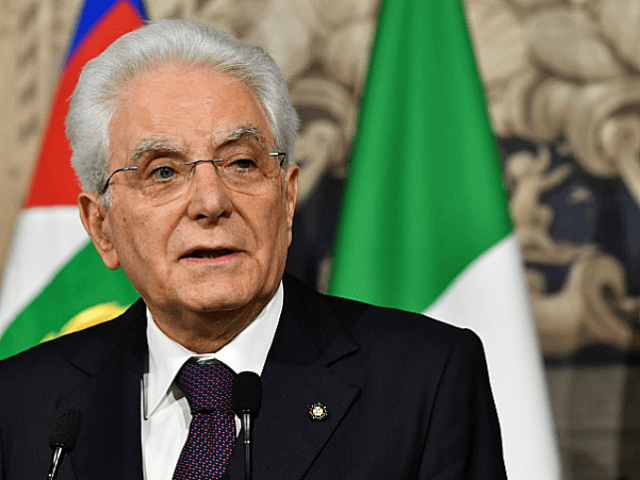ROME, Italy: Italians were in uproar Monday over the decision by President Sergio Mattarella to reject the newly elected populist government in deference to European Union concerns, calling for his resignation or impeachment.
This was the first time in the history of the Italian republic that a president had thrown out the proposal for a government from elected parties, and even critics of the populist victors have acknowledged that the Italian people will take the move as a slap to Italian voters and the entire democratic process.
The bone of contention, Mattarella said in his rejection speech, was the candidate for the post of finance minister, Paolo Savona.
“I have agreed with and accepted all the proposals for the Ministers, except that of the finance minister,” he said Sunday.
“The designation of the finance minister always sends an immediate message, of confidence or of alarm, for economic and financial operators,” he added.
Paolo Savona, whom even his critics admit is eminently qualified for the post, has expressed concerns over the growth in power and reach of the European Union (EU) as well as the common EU currency, the euro, which he has referred to as a “German cage.”
Mattarella said that he had requested a candidate for finance minister who “is not seen as a supporter of an often repeated line, which could possibly or even inevitably provoke Italy’s exit from the euro.”
Both League leader Matteo Salvini and the 5-Star candidate Luigi Di Maio have criticized Mattarella’s resistance to Savona, insisting it reflected the displeasure of “Berlin” and other establishment powers rather than true concern for Italians.
Mattarella’s power play will almost certainly work to the favor of the populist leaders because it will galvanize voters into reasserting with even greater force their sovereignty.
Former left-wing prime minister Massimo D’Alema already warned on Saturday that “if we have to go back to the ballot box because of a veto of Savona, Salvini will pick up 80 percent” of the vote.
The national news service ANSA released an article announcing that “impeachment” had found its way back into the Italian vocabulary as a result of Mattarella’s unprecedented move.
https://twitter.com/JDouluz/status/1000893114381471744
Article 90 of the Italian constitution foresees recourse to impeachment only in two cases: high treason and an attack on the constitution itself, which Di Maio has said could be invoked in the present case.
More likely than an actual impeachment, however, the new populist platform will almost certainly be modified to include a reworking of presidential powers to impede the holder of the office—who is not directly elected by citizens—from contravening the democratically expressed will of the people.
The outrage was palpable on Twitter Monday morning as participants voiced their indignation against Mattarella and the system that made his actions possible.
“This is the proof that Italy is still under attack and no national sovereignty is possible,” wrote one commenter.
Another advised his fellow Italians to “wake up,” calling Mattarella “a simple puppet who carries out orders of strong powers.” Italy used to be a great country, he added, and must become one again. “It’s time for a political revolution for the people,” he said.
https://twitter.com/GedeoneParlone/status/1001037953748041728
Meanwhile, celebrated Milanese activist and author Massimo Fini has defined Mattarella’s “unheard of” veto as a “coup d’etat,” which puts Italy at risk of a civil war.
Amidst the outrage, the leader of the largely collapsed Democratic Party (PD), Maurizio Martina, voiced his support for Mattarella, saying that his party—widely understood to represent the establishment—was ready “to mobilize a defense of democracy and our institutions” if attacks on the Italian president persist.
On Monday morning, Mattarella said he would entrust the task of forming an interim “technical government” until new elections can be held to Carlo Cottarelli, of the International Monetary Fund (IMF).
Follow Thomas D. Williams on Twitter Follow @tdwilliamsrome

COMMENTS
Please let us know if you're having issues with commenting.